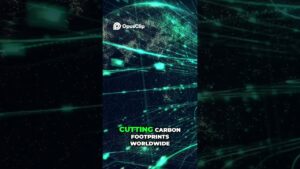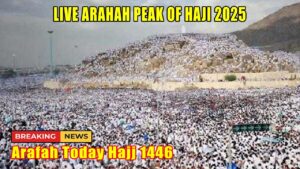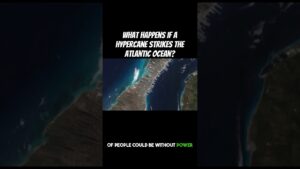
In what’s been described as a historic turning point, nearly 200 nations agreed in Paris Saturday to a global accord to rein in rising greenhouse gas emissions blamed for warming the planet. The accord was reached at the conclusion of the two-week U.N. climate change conference, known as COP21. Under the deal, nations will make voluntary commitments to begin cutting emissions. In addition, the deal provides billions more dollars to help poor nations cope with the transition to a greener economy powered by renewable energy. “What we saw in the last two weeks was that every country around the world agreed we have to do much, much more to fight climate change effectively, and to begin to set up a dialogue and mechanism for rich countries to aid the poor countries, and to make room for continuous ambition moving forward,” says Michael Brune, executive director of the Sierra Club and author of “Coming Clean: Breaking America’s Addiction to Oil and Coal.” But climate justice activists disagree on how effective the agreement will be in rolling back the effects of climate change. “What I see is an agreement with no timetables, no targets, with vague, wild aspirations,” says British journalist and author George Monbiot, columnist with The Guardian and author of the 2006 book, “Heat: How to Stop the Planet from Burning.” “I see a lot of backslapping, a lot of self-congratulation, and I see very little in terms of the actual substance that is required to avert climate breakdown.” We speak with both Brune and Monbiot about the agreement.
Democracynow.org – Democracy Now!, is an independent global news hour that airs weekdays on 1,300+ TV and radio stations Monday through Friday. Watch our livestream 8-9am ET: http://democracynow.org
Please consider supporting independent media by making a donation to Democracy Now! today: http://democracynow.org/donate
FOLLOW DEMOCRACY NOW! ONLINE:
Facebook: http://facebook.com/democracynow
Twitter: https://twitter.com/democracynow
YouTube: http://youtube.com/user/democracynow
SoundCloud: http://soundcloud.com/democracynow
Daily Email: http://democracynow.org/subscribe
Google+: https://plus.google.com/+DemocracyNow
Instagram: http://instagram.com/democracynow
Tumblr: http://democracynow.tumblr
Pinterest: http://pinterest.com/democracynow
iTunes: https://itunes.apple.com/podcast/democracy-now!-audio/id73802554
TuneIn: http://tunein.com/radio/Democracy-Now-p90/
Stitcher Radio: http://www.stitcher.com/podcast/democracy-now
source




Any talk about Climate Change is INCOMPLETE without the recognition that Global Climate #GeoEngineering is currently the #1 effect on the climate, but never discussed among "mainstream channels", like DemocracyNow (Ford Foundation funded). You can NOT hide from this fact. http://www.GeoEngineeringWatch.org
50,00 attendees getting on their high horse, sounding off and pontificating to the rest of the world while comfortably traveling to and from Paris in their private jets. Add in two weeks of hotels, taxis, espressos, pastries, cold cuts and wine toasts, and you realize that these talks are not free in terms of raw emissions. In fact, it's nothing more than man-made hot air and political manure. Money talks and bullshit walks.
Optimism is not a great thing to rely on. Climate negotiations since Kyoto have failed, mostly because no nation has the ability to police any other on its promises. In other words, the tragedy of the commons. The only way to get a climate agreement that works is through a global climate movement committed to retiring meat consumption. It's a win-win-win situation: better for our health, better for the environment and better for the billions of voiceless animals who are slaughtered annually across the globe.
Climate change demands a diet change. Our food choices have the number one impact on the environment. A global moratorium on fossil fuels and carbon taxing are both interesting ideas — economists love the notion of "shared incentive" — but predictably, it didn't happen in Paris. No, the biggest failure of COP21 is the failure to address animal agriculture as a global contributor to climate and environmental change. No one is talking about animal agriculture, yet studies have shown that it controls the earth's thermostat and that its consequences are beyond disastrous. Animal agriculture is destructive in every imaginable way. It is the leading cause of species extinction, ocean dead zones, water pollution and habitat destruction. One third of the planet is desertified because of livestock. Animal farming is responsible for up to 91% of Amazon destruction, with one to two acres of rainforest cleared every second, killing up to 140 species of plants, animals and insects daily in the process. Eighty-two percent of starving children live in countries where crops are fed to animals. Seventy billion farm animals are reared annually worldwide, with more than six million animals killed for food every hour and a total of 650 billion land and marine animals exterminated each year. If people would stop eating meat altogether, the environment could start to heal from the devastation of the animal products industry. Natural habitats destroyed by industrial agriculture could start to have a fighting chance. The meaningless slaughter of billions of sentient beings would end and close to 90% of our crops could feed the world’s hungry instead of the West's bulging and ailing gut. Biking, taking short showers, recycling: at the end of the day, these are only a token of what we can hope to accomplish by cutting down on or retiring meat consumption altogether.
I look at it this way: when you dine at a restaurant, you can only choose your meal from what's offered on the menu. If the restaurant owner changes the menu, your options change accordingly. If you don't like the menu, you can dine elsewhere. But from a global climate point of view, there is no elsewhere. There is no elsewhere, but we can change our menu to include less or no meat at all. This is something we can achieve outside of government policy. We shouldn't be convincing our governments to change things — we should be calling on the activists and the people. It's an assumption that those who met in Paris to address climate change actually wanted to address climate change. We can "opt out" of this climate lie at any time. Or we can keep rationalizing why our love for meat is more important than life itself.
The choice is ours. Let's be real environmentalists.
I love you POTUS, but the planet will be fine, our species won't.
lie lie lie lie lie lie lie lie.we're FUCKED
… and since that Paris Agreement bugger all has been done, and as long as the UK govt subsidises the fossil-fuel-based industries this effectively means we the taxpayers are paying for our own demise!🤬